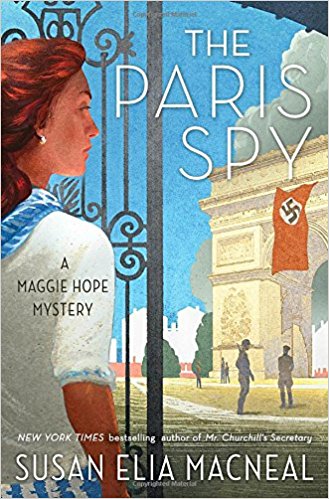 If you’re Catholic and you’ve been to church lately (it is Advent after all, which is not just for reading Jane Austen), then you may have found yourself slightly befuddled. Perhaps, like me, you were tripping over the words and not actually knowing what to say for the first time since you were six-years-old.
If you’re Catholic and you’ve been to church lately (it is Advent after all, which is not just for reading Jane Austen), then you may have found yourself slightly befuddled. Perhaps, like me, you were tripping over the words and not actually knowing what to say for the first time since you were six-years-old.
The Church has introduced a new liturgy and new prayers which are said to closer resemble scripture than the mass we’ve been saying since Vatican II. Really, this is a closer translation to the Latin Mass, and this whole move seems to be a nod to the small, vocal minority who want to return to that.
As someone who spends most of each day writing or editing, the words of the new version are not sitting well with me from an editorial viewpoint. No, I’m not one of those people who simply hates change. (Hey, I loved the Star Trek reboot!) But hearing the new liturgy has sparked in me a real appreciation for how beautifully the post-Vatican II translation read, and how well it worked.
In the Nicene Creed, we would say that Jesus is “one in being with the Father”—a simple phrase that conveys so much. As a kid, I remember the priest repeating this phrase in CCD as he tried to explain to us the concept of the Holy Trinity—that God, Jesus, and the Holy Spirit are all “one in being.” Interconnected—sort of like “the Force” in Star Wars, apologies for the repeated sci-fi references. Growing up, we spent our summers in Georgia, where the Southern Baptists and other evangelical Christians at times eyed us with suspicion. Religion is a daily, even an hourly, topic of discussion in the South, and I’m not kidding when I say that more than one kid came up and asked me why Catholics believed in ghosts. I would laugh and try to explain the whole “one in being” thing. Maybe they didn’t get it, but I did. (Aside: updating the Holy Ghost to the Holy Spirit was a good editorial move.)
Now we are to say of Jesus, that he is “consubstantial with the Father.” Huh? It smacks of legalese—not what I’m looking for on a Sunday morning—and has me wondering if I need a contracts lawyer. But more importantly, it just doesn’t mean anything to me. It’s Latin, or Latinate, and this is a perfect example of how simple language works so much better than the inflated. Right now, we are all stumbling over that word, but in a few weeks it is just the sort of phrase to cause our eyes to glaze over as we read it. Though the Church says its aim with the new liturgy is to get parishioners more invested, it feels just the opposite.
One of my favorite spoken responses always came before communion, when the congregation said “Lord I am not worthy to receive you, but only say the words and I shall be healed.” It reminds us that we are humble, and flawed, and who the heck are we to look to this greater power each Sunday? But the magic is that we can. It also emphasizes how Jesus reached out to everyone regardless of status (something that mattered a great deal back then to Jewish rabbis, to those phony Pharisees, and of course to the Samaritans—except the good one). The story, if you aren’t familiar, is of a Roman Centurion who asks Jesus to heal his servant (Matthew 8). Jesus offers “to come and cure him,” but the Centurion does not feel that he can invite a holy man into his house. Instead he asks Jesus to bless his servant and “only say the words.” So it’s also a bit of a parable of faith—the Centurion believes in Jesus without actually seeing him lay hands on the sick man. (Don’t worry, I won’t segue into the whole faith versus science debate on LOST.)
But, in an attempt to be closer to the Latin translation, the line which has sparked in me so much spiritual reflection now reads: “Lord I am not worthy … that you should enter under my roof?!” Suddenly I am thinking about how much mud my dog tracked in that morning and whether or not I have vacuumed yet. The phrase feels rather secular and not so spiritual. I’m not really sure what I am supposed to do with this. It’s not Passover, after all. Not that it would work on Passover, since the whole point then is for the angel not to come under my roof, which by the way is rented.
There are many other awkward changes, such as Jesus being “incarnate of the Virgin Mary” rather than simply “born” of her. Again, this feels overwrought—“purpley” as we say in the editing biz. After knowing it by heart for most of my life, I’m only now realizing what a great job they did when they wrote the post-Vatican II liturgy—smoothing out the awkward Latin translations and distilling spiritual concepts into the vernacular. I also appreciated how it was the same everywhere in the world, so whether I was in Moscow or Shanghai, I could follow along just by the cadence and rhythm. With the new mass, it’s a bit like when you are traveling in Spain, feeling good about your Spanish, but then someone starts speaking in Catalan or Portuguese. You think you should understand what they are saying, you catch a word or two, but really they might as well be speaking Greek, or in this case, Latin.
Read Full Post »





 If you’re Catholic and you’ve been to church lately (it is Advent after all,
If you’re Catholic and you’ve been to church lately (it is Advent after all,  The Grinch this year is not out of a book, but selling them … along with toys, electronics, and dvds. The online megalith Amazon has hatched a scheme to pay customers to walk out of retail stores on Saturday Dec 10 without making a purchase. Amazon wants shoppers to scan the price of electronics, toys, or dvd’s with their Price Check app (thus sending them this data), and then walk out of the store to get a discount of up to $5 on that item online. It’s a pretty low blow—despicable—considering that retail stores are already suffering in this tough economy and that this is typically their make-or-break time of year.
The Grinch this year is not out of a book, but selling them … along with toys, electronics, and dvds. The online megalith Amazon has hatched a scheme to pay customers to walk out of retail stores on Saturday Dec 10 without making a purchase. Amazon wants shoppers to scan the price of electronics, toys, or dvd’s with their Price Check app (thus sending them this data), and then walk out of the store to get a discount of up to $5 on that item online. It’s a pretty low blow—despicable—considering that retail stores are already suffering in this tough economy and that this is typically their make-or-break time of year.




